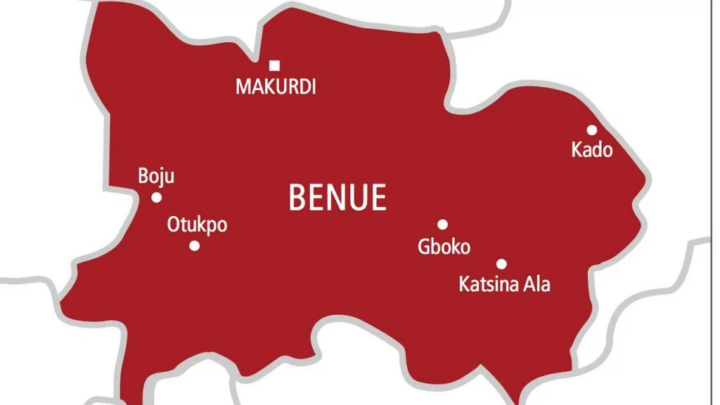Tragedy struck again in Benue State as at least six people lost their lives, and several others were injured following two separate attacks by armed herdsmen on the Iwari and Olegagbane communities in Agatu Local Government Area.
These latest incidents underscore the ongoing violence and instability plaguing the region.
The attacks, which occurred on Friday evening, have left the local communities reeling.

According to a local source, who requested anonymity due to safety concerns, the first attack took place in the Iwari community, where one person was killed and several others sustained injuries.
Shortly after, the Olegagbane community was also targeted, resulting in the deaths of five more individuals and further injuries among the local populace.
“In recent times, Agatu communities have faced repeated assaults by these marauders, who strike intermittently and then retreat,” the source told Newsmen. “On Friday, the armed herdsmen attacked the Iwari community, killing one person and injuring several others.
The same day, they struck the Olegagbane community, killing five people and wounding several others without any provocation.”
The assailants reportedly fled the scene immediately after carrying out the attacks, leaving the communities devastated.
Although the attackers vanished into the night, locals were quick to identify them as armed herdsmen, a group that has been linked to numerous similar incidents in the area over the years.
The Agatu Local Government Area has become a frequent target for violent raids, with herdsmen often implicated in these deadly confrontations.
The persistent nature of these attacks has led to widespread fear and instability within the region, as residents live in constant dread of when the next assault might occur.
Phillip Ebenyakwu, the chairman of Agatu LGA, confirmed the attacks and expressed his deep concern over the ongoing violence.
He highlighted the devastating impact these attacks have had on the local communities, not just in terms of loss of life but also in the broader context of security and livelihood.
“The attackers come, kill, steal, loot, and then flee. I do not know their motives, but these attacks are unbearable,” Ebenyakwu stated.
He further emphasised that he is in continuous communication with security agencies, urging them to address the growing insecurity in the area.
However, despite these efforts, the attacks have continued unabated, leaving the local government and its people in a precarious situation.
Beyond the immediate loss of life, these attacks have also triggered a severe humanitarian crisis.
The violence has forced the displacement of over 2,000 people from seven villages in the Agatu LGA.
These displaced individuals, who have lost their homes and livelihoods, now face uncertain futures as they seek refuge in makeshift camps or with relatives in neighbouring areas.
Ebenyakwu spoke candidly about the challenges of managing the displaced population.
“The number of displaced people is overwhelming. Although the State Emergency Management Agency provided some relief materials, it was not sufficient,” he lamented.
The lack of adequate resources to care for the displaced has only compounded the suffering of those affected, many of whom are struggling to meet basic needs such as food, water, and shelter.
The situation in Agatu is a microcosm of the larger security challenges facing Benue State and many other parts of Nigeria, where clashes between herdsmen and local communities have become alarmingly frequent.
These conflicts, often driven by competition over land and resources, have escalated in recent years, leading to widespread violence and displacement across the country.
While the local government and community leaders have called for increased security measures, the response from the authorities has been slow and, in many cases, inadequate.
The Nigeria Police Force, tasked with maintaining law and order, has often been criticised for its inability to prevent these attacks or apprehend the perpetrators.
Police Public Relations Officer Superintendent Catherine Anene, when contacted, stated that she had not yet received information regarding the latest attacks.
This response highlights the communication gap between local communities and law enforcement, which often hinders effective and timely intervention.
The lack of a robust and coordinated response to these security challenges has left many communities vulnerable to repeated attacks.
As the violence continues, there is growing frustration among residents, who feel abandoned by the very institutions meant to protect them.
The recent attacks on the Iwari and Olegagbane communities are a grim reminder of the persistent insecurity in Benue State.
As families mourn the loss of their loved ones and thousands face displacement, the need for urgent and decisive action cannot be overstated.
Local leaders, security agencies, and the government must work together to address the root causes of this violence and restore peace to the beleaguered communities of Agatu.
The future of these communities depends on it.
Support InfoStride News' Credible Journalism: Only credible journalism can guarantee a fair, accountable and transparent society, including democracy and government. It involves a lot of efforts and money. We need your support. Click here to Donate
